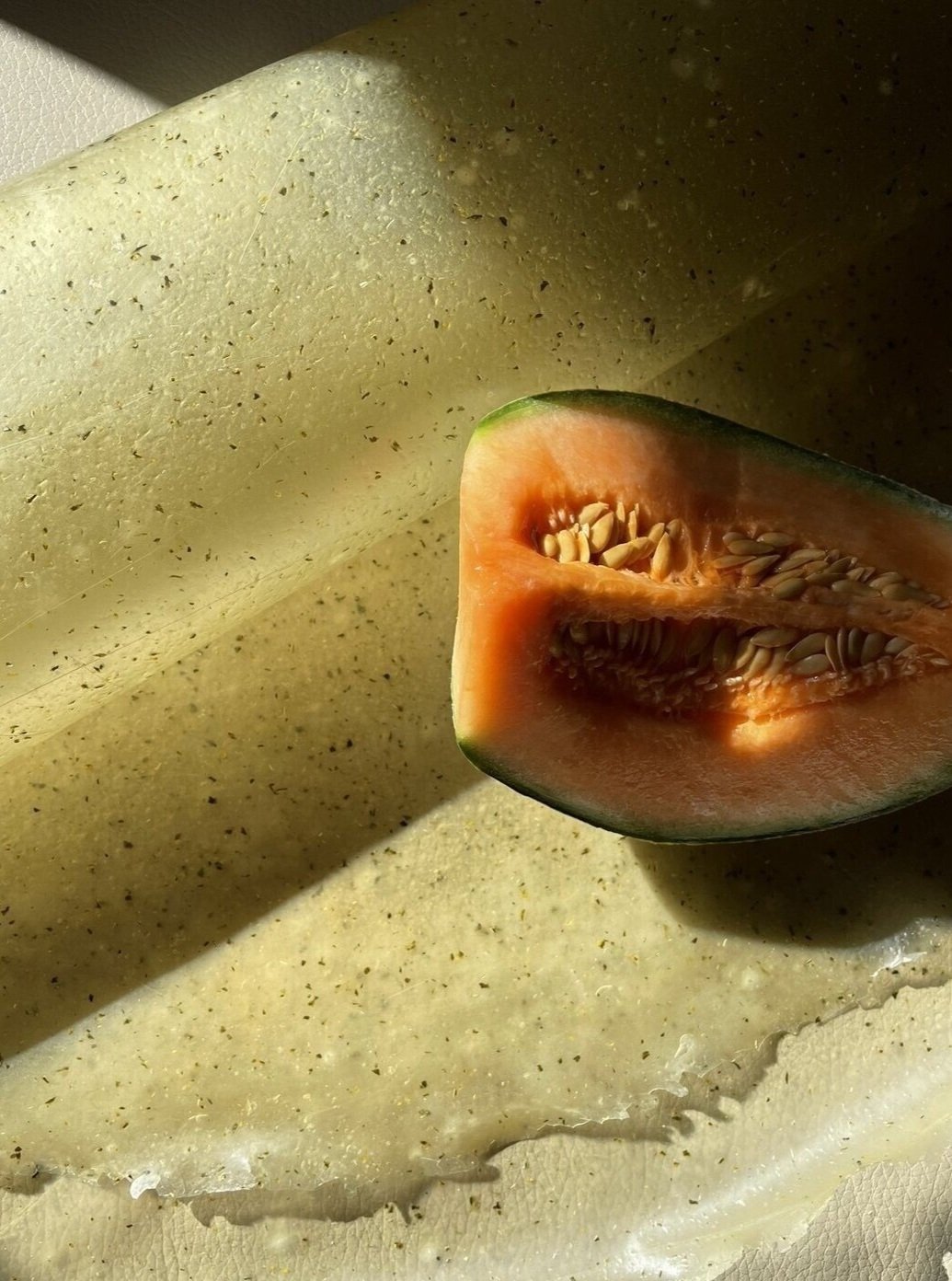Bio-based plastics: compostable or biodegradable
RESEARCH BY Berta Daina
BioMaterial made by organic waste
Words Nina Zulian Edition Matthew Burgos
Bio-based plastics may have taken the spotlight as solutions and alternatives to oil-based plastics, but plastics made from bio-based materials are not necessarily compostable or biodegradable. Berta Daina - the designer, researcher and founder of Agro - develops biomaterial derived from organic waste, such as fruit scraps. Unlike conventional, petroleum-derived plastics, this material comes into contact with microorganisms once it is deposited with organic waste, degrading it until it completely disappears.
She clarifies the difference between compostable or biodegradable.“These two terms are often used synonymously because they are difficult to differentiate and so closely related,” Daina tells Plural. “Both production processes use substances of natural origin that degrade naturally through these living organisms. Their difference lies in the decomposition result.”
Biodegradable products comprise naturally occurring substances, but can also be made from synthetic substances. It refers to a product’s ability to be completely decomposed by microorganisms. "On the other hand, compostable products contain only natural substances as compost is obtained from the biodegradation of a product rich in organic matter and free from toxic and synthetic elements," says Daina. Therefore, compostable products are biodegradable with an additional benefit: during decomposition, they release valuable nutrients into the soil, creating compost which benefits growing plants as a natural fertilizer and pesticide."
“These two terms are often mistakenly used synonymously because they are difficult to differentiate and so closely related. Both production processes use substances of natural origin that degrade naturally through these living organisms. Their differentiation lies in the decomposition result.
Biodegradable products comprise naturally occurring substances but can also be made from synthetic substances. It refers to a product’s ability to be completely decomposed by microorganisms.
Compostable products, contrastingly, comprise only natural substances. Compost is obtained from the biodegradation of a product rich in organic matter and without toxic and synthetic elements. Therefore, compostable products are biodegradable with an additional benefit: during decomposition, they release valuable nutrients into the soil, creating compost, which benefits growing plants as a natural fertiliser and pesticide.”

